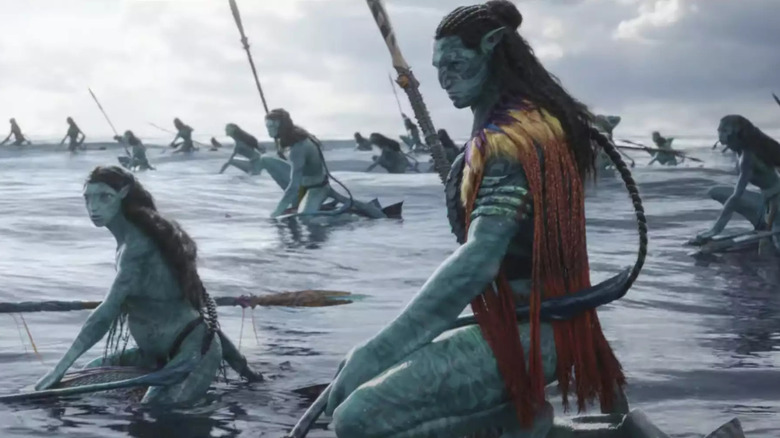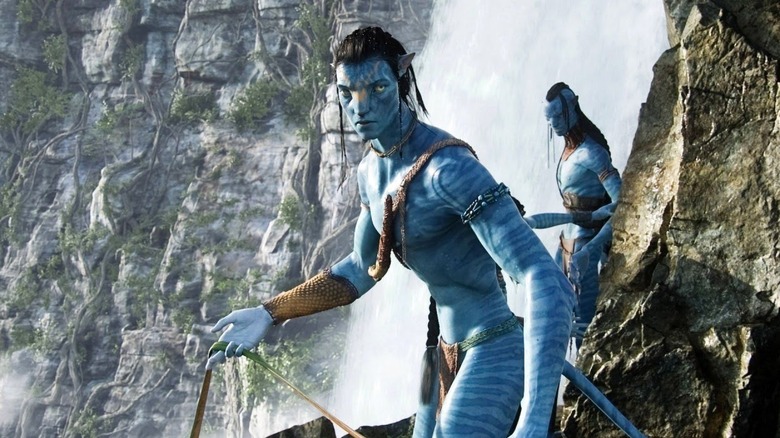James Cameron Reflects On Why Avatar Has Endured With Audiences Around The Globe
Throughout the past decade, it's become a common internet trend to remark on how little cultural impact "Avatar" ended up having. A 2014 Forbes article remarked that although it was the "highest-grossing film of all time," it did not stick around in our minds to nearly the extent of director James Cameron's other blockbusters. "Five years later it is all but forgotten in the pop culture landscape," the article reads. This was among the earliest observations of this sort, but it certainly wasn't the last.
The reasons behind this line of thinking are understandable: the movie lacks characters who are as memorable as the ones in "Terminator" or "Titanic." And whereas Cameron usually focuses on the characters and emotions alongside the spectacle, with "Avatar" he seemed more interested in the impressive visual effects. It lead to a film that certainly looked nice, but didn't give us too much to think about.
But with SNL's 2017 Papyrus sketch and the teaser trailer for the sequel already amassing millions of views, it's become increasingly clear that "Avatar" has stuck with us. As much as we may act like we've forgotten about the first movie, there is a strong, growing general anticipation for "Avatar: The Way of Water," releasing in theaters on December 16 this year.
Cameron himself is not surprised. In a recent press conference attended /Film's own Bill Bria, the director speculated as to why the film has made a lasting impact. Among many things, he credits how unconcerned the movie was with the contemporary world of the late 2000s:
"It took us out of our day-to-day problems, took us to a place where yes, there's conflict, there's all sorts of important things going on, but it's all through a lens of fantasy or science fiction."
The beauty of nature
Whereas most point to the film's technological accomplishments as being its most noteworthy feature, Cameron says the innovative filmmaking techniques were mainly important in how they helped to enhance the emotions of the film. "I think after the first few minutes people just gave up trying to figure out how it was done," he said. The goal was not just to impress audiences with how cool everything looked; the goal was to get audiences as involved in the story as intimately as possible. Cameron speculates that audiences "just kind of surrendered to a sense of immersion."
What were audience immersed into? It was the movie's embrace of the strange, beautiful alien world of Pandora. As Cameron explained:
"When we're kids we just innately love nature ... Society at large, anywhere in the world, is suffering from a nature deficit disorder of some kind, to some degree, and I think the movie puts us back into that childlike wonder about nature, about nature's grandeur, and the complexity of beauty."
You can see that interpretation of the film's success reflected in the teaser for the sequel. It barely tells us anything about the plot and it barely has any dialogue; what it does give us is a quietly contemplative look at the world of Pandora, showing us just how stunningly beautiful a place it is.
There's no way to tell for sure if the sequels will be as successful as the original, but we do know that Cameron hasn't failed us yet, and that he's going about the sequels with a clear understanding of what makes the first film work. That childlike sense of wonder doesn't seem to be missing with "The Way of Water," and there's no reason to think it's going anywhere anytime soon.

